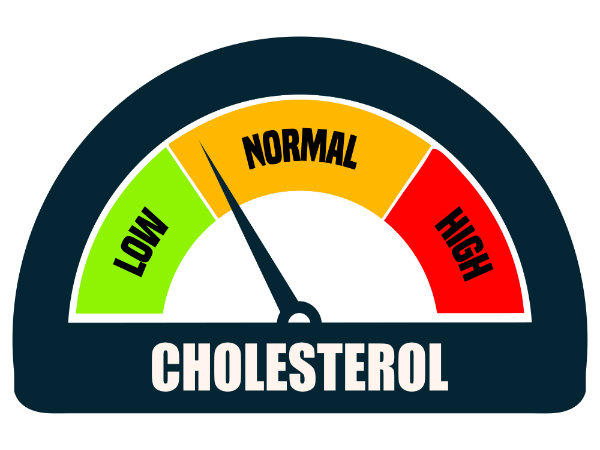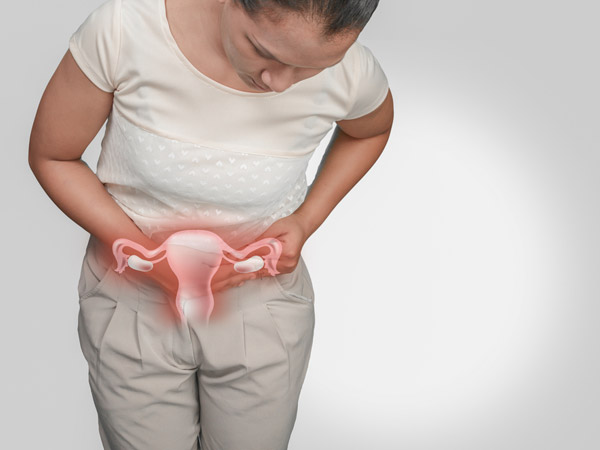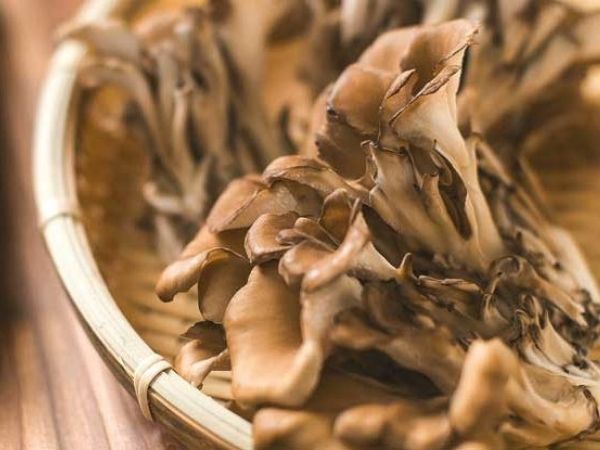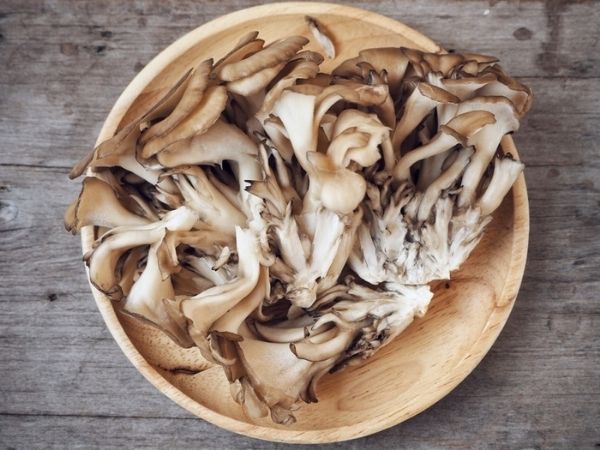Nutrition
oi-Neha Ghosh
on November 12, 2020
Medicinal mushroom is well-known for its incredible health-promoting properties which have been used to help promote overall health for thousands of years. Maitake mushroom is a type of medicinal mushroom which boasts of numerous health benefits.
Maitake (Grifola frondrosa) mushroom is a popular edible mushroom native to China but are also grown in Japan and North America. The mushroom grows in clusters at the bottom of oak, elm and maple trees [1] [2].
Maitake mushroom, also known as hen of the woods, sheep’s head and ram’s head, are considered adaptogens – meaning they contain powerful medicinal properties that can aid in naturally restoring and balancing the body to enhance overall health.
Maitake mushroom has a feathered, frilly appearance, delicate texture and an earthy flavour that blends well in all kinds of dishes.
Nutritional Value Of Mushroom
100 g of maitake mushrooms contain 90.37 g water, 31 kcal energy and they also contain:
- 1.94 g protein
- 0.19 g fat
- 6.97 g carbohydrate
- 2.7 g fibre
- 2.07 g sugar
- 1 mg calcium
- 0.3 mg iron
- 10 mg magnesium
- 74 mg phosphorus
- 204 mg potassium
- 1 mg sodium
- 0.75 mg zinc
- 0.252 mg copper
- 0.059 mg manganese
- 2.2 mcg selenium
- 0.146 mg thiamine
- 0.242 mg riboflavin
- 6.585 mg niacin
- 0.27 mg pantothenic acid
- 0.056 mg vitamin B6
- 21 mcg folate
- 51.1 mg choline
- 0.01 mg vitamin E
- 28.1 mcg vitamin D
Health Benefits Of Maitake Mushroom

1. Strengthens immunity
Consuming maitake mushroom can help in boosting your immunity by fighting off foreign invaders and protecting your body against infections. Maitake mushrooms contain beta-glucan, a type of polysaccharide, a long molecule of carbohydrates that has a positive effect on the immune system. An in vitro study published in the Annals of Translational Medicine found that maitake mushroom extract, when combined with shiitake mushroom extract, were effective in stimulating an immune response. Though the study looks promising, further research is needed in humans [3].
 Shiitake Mushrooms: Nutrition, Health Benefits And Ways To Eat
Shiitake Mushrooms: Nutrition, Health Benefits And Ways To Eat

2. Reduces cholesterol levels
Noted studies have suggested that maitake mushroom could help in lowering cholesterol levels naturally. An animal study published in the Journal of Oleo Science found that maitake mushroom extract was effective in decreasing cholesterol levels in mice. However, further research studies are needed in humans [4].

3. Lowers diabetes risk
Some animal studies suggest that maitake mushroom may lower blood glucose levels. A 2015 study published in the International Journal of Medicinal Mushrooms found that maitake mushrooms reduced blood glucose levels in rats with type 2 diabetes [5]. Another study showed similar results that maitake mushrooms possess powerful anti-diabetic properties that lowered blood glucose levels in diabetic mice [6].
 8 Amazing Health Benefits Of Oyster Mushrooms
8 Amazing Health Benefits Of Oyster Mushrooms

4. Controls blood pressure
Consuming maitake mushroom daily can help stabilise blood pressure levels. As per a study published in the International Journal of Medical Sciences, rats that were given maitake mushroom extract could help lessen age-related hypertension [7]. Another study showed that feeding rats maitake mushroom for eight weeks reduced blood pressure [8]

5. May treat PCOS
Polycystic ovary syndrome (PCOS) is a hormonal disorder that causes the ovaries to become enlarged where small cysts start forming on the outer edges of the ovaries. PCOS is one of the most common causes of female infertility.
Some research studies suggest that maitake mushrooms may work against PCOS and can help combat infertility. A 2010 study found that maitake mushroom extract was able to induce ovulation in PCOS patients and was nearly as effective as traditional medicines used for the treatment of PCOS [9].
 11 Health Benefits Of Mushrooms
11 Health Benefits Of Mushrooms
READ RELATED: Scientists find 'missing link' in allergic reactions to popular skin creams

6. May manage cancer
Research studies have shown that maitake mushroom may contain cancer-fighting properties that may help in preventing and treating cancer. Maitake extract can slow down the growth of breast cancer cells, thanks to the presence of beta-glucan known as D-fraction in the mushroom that has been found to have anti-tumour activity [10] [11] [12].
Another study published in the International Journal of Cancer found that maitake mushroom may suppress the growth of tumour in mice [13].

Side Effects Of Maitake Mushroom
Consumption of maitake mushroom is considered safe. However, some people may have an allergic reaction to the mushroom. Some studies have reported that maitake mushroom supplements may interact with certain medicines like blood sugar lowering medications and blood-thinning medications [14] [15].
Additionally, you shouldn’t consume maitake mushroom within two weeks of scheduled surgery.
If you are pregnant or breastfeeding, consult your doctor before consuming maitake mushrooms.
Image ref: Healthline

How To Use Maitake Mushroom
Choose whole fresh, young and firm mushrooms and wash them properly before consuming. Store the mushrooms in a paper bag in the refrigerator. You can add them to soups, stir-fries, salad, pasta, pizza, omelette and other dishes.
If you are considering taking maitake mushroom supplements, consult with your doctor before ingesting it.
Maitake Mushroom Recipe
Grilled Thai Marinated Maitake Mushrooms [16]
Ingredients:
- 900 g maitake mushroom
- ¾ cup olive oil
- ¼ cup tamari
- 6 leeks cut into small pieces
- 3 tbsp maple syrup
- 1 tsp curry powder
- 3 tbsp white wine
- ¼ tsp sea salt
- 1/8 tsp ground black pepper
Method:
- Wash the mushrooms properly and slice them up. Then lay them out in a casserole dish for marinating.
- Add all the marinade ingredients in a blender and blend it well. Pour it over the mushrooms.
- Cover the casserole with a plastic wrap and place it in the refrigerator for four hours.
- Then take it out and grill over medium high heat on each side for 3 to 5 minutes and serve.
Image ref:mushroom-revival
GET THE BEST BOLDSKY STORIES!
Allow Notifications
You have already subscribed
Source:








